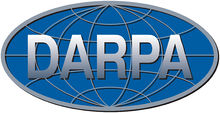: 1818 Library Street; Suite 600; Reston, Virginia 20190
: Added: Jan 16, 2015 11:11 am
Our research over the last six years has focused on the modeling and solution of complex resource allocation problems, which resulted in the integration of math programming within the emerging field of approximate dynamic programming, summarized in
Warren B. Powell, Approximate Dynamic Programming: Solving the curses of dimensionality, John Wiley and Sons, New York, 2007.
These techniques allow us to address problems which involve high-dimensional decision vectors (which routinely arise in resource allocation problems) under various forms of uncertainty. These techniques have proven themselves in a number of major project with civilian transportation companies (with implemented software), and several demonstration projects on air force logistics problems.
APPROXIMATE DYNAMIC PROGRAMMING: LESSONS FROM THE FIELD - 022.pdf
NRL What you should know about ADP_Dec162008.pdf


No comments:
Post a Comment